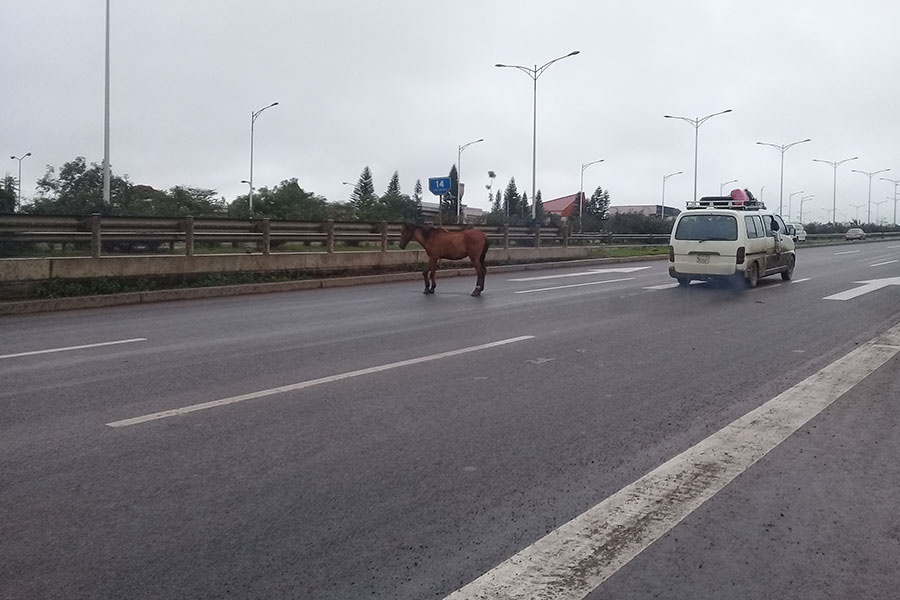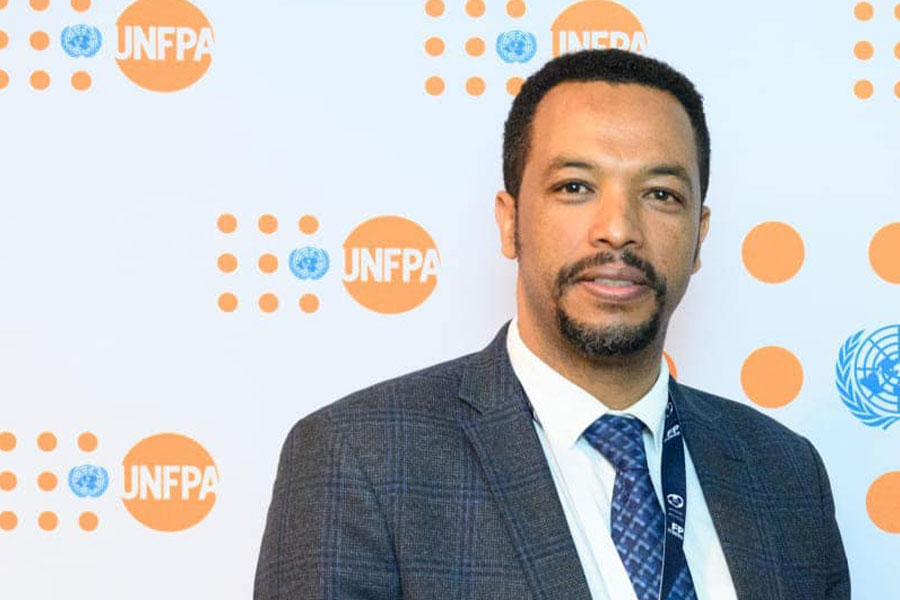
Radar | Jul 17,2022
Aug 1 , 2020
By Senay Lemma , Solomon Girma
The workplace protocol released shortly after the outbreak of COVID-19 in Ethiopia, despite being a positive beginning, fails to weigh the pros and cons properly enough and unfairly puts the load on the shoulders of employers alone, write Senay Lemma (senaylemma2@gmail.com), human capital manager in an international organisation, and Solomon Girma (s_girma21@yahoo. com), a freelance human capital consultant.
The Novel Coronavirus (COVID-19) pandemic, more than any crisis in recent history, has demonstrated the urgency of enabling firms to survive the crisis and retain employees. Given that national economic capacities are key to unlocking the potential to endure the crisis, even developing countries such as Ethiopia have been unrolling economic packages to meet this urgency.
One of the tools used in this regard by Ethiopia’s government has been the workplace protocol, prepared by the Ministry of Labour & Social Affairs (MOLSA) based on the guidelines of the International Labour Organisation (ILO). It has two major purposes.
Primarily, it will be used to implement preventive measures that give instructions to employers, workers and safety officers on what they should do to protect themselves and others from the virus. It requires employers to ensure the provision of sanitary materials, eliminates congestion in workers’ transportation services, and promotes social distancing.
The protocol is also meant to mitigate the impact of the pandemic on the economy and on workers’ socioeconomic situation, as well as focus on the sustainability of enterprises. It suggests measures to be taken before laying off workers including the freezing of salary increments, suspending fringe benefits, and revising down existing salary scales.
The gravity of the situation, however, meant urgency in its application and preparation. The pros and cons were not weighed properly enough, and there was a shortcoming in embracing and involving various potential stakeholders that may shoulder responsibilities arising due to the negative impacts of COVID-19 at workplaces.
A case in point is how the protocol fails to consider the burden that is placed on employers, with retention of employees and maintenance of workplace health safety - the role of the government was overlooked. Many employers have been complaining about it since its introduction, and the Employers’ Federation has been alerted to it as well.
The protocol has also missed several key issues of considerations and failed to provide detailed explanations to even those workplace issues that are contained in it. It fails to define its scope and its concomitance with existing laws.
It does not indicate, for instance, what kind of leave is to be granted to employees who are forced to stay in quarantine. It has also not been made clear if an employer can terminate an employment contract in case of force majeure or bankruptcy or due to grave misconduct such as theft or fraud, frequent absence, poor performance or incompatibility during probationary period, expiry of contract, retirement or resignation.
There is no clear provision of guidelines in the protocol regarding the reduction of salary and furloughs. The protocol lacks detail on the how to proceed with loan agreements, the loan amount limit and the financial position of the employer, and the extent of employers’ and employees’ obligations while considering the provisions.
The protocol also raises ILO’s guideline on basic income security and social services but does not detail how they can be implemented.
Making matters worse is the lack of awareness. The media, labour unions and employees are not well-informed about the protocol, making it much more likely that the protocol would remain underutilised and its gaps unquestioned.
The state of emergency that was enacted to contain the spread of the virus and deal with subsequent economic issues also raise the matter of employment. It, for instance, bans all private employers from reducing their workforces and terminating contracts prematurely. It is not at all clear what employers are to do in the instance of financial ruin.
The response to mitigate the impacts of COVID-19 requires resilience, focused attention and collective action to address the current crisis. The COVID-19 pandemic is likely to have significant adverse effects on keys sectors of Ethiopia's economy and employment for the coming years. Considering these points, it is the right time to mend the gaps in the protocol.
The framework of reviewing the protocol should start with due consideration of the problem areas and workplace challenges that are emerging during and after the implementation of the protocol. Unless an appropriate improvement is made to the contents of the protocol - making up for its lack of clarity ambiguity and shortsightedness - it will be troublesome for execution, which in turn will put employers’ and employees’ survival in danger.
The main concern here is not only determining what the relationship between employers and workers should be, but it is also about ensuring the survival of the country’s economy with minimal damage during the crisis.
Closing the gap can start by clarifying the prohibition on terminations - whether or not this prohibition is to last for the period of the crisis and if it holds for terminations unrelated to COVID-19. Can terminations continue as usual if the employer is faced with an unbearable financial crisis and notifies MoLSA in advance.
In the same token, provisions of regulations regarding the reduction of working hours and salaries, and the conditions of giving leave without pay during the crisis period, particularly for companies that are struggling to survive, are necessary. In this case, it is advisable to give additional leave without pay until the end of the crisis.
The protocol also demands employers withhold fringe benefits and allowances. Here, it is better to leave such pay related matters to the discretion of the employer for they can cease paying these types of benefits anytime by themselves depending on their business return.
During such a crisis situation, the primary prerequisite for responding capably is the commitment of the government to adopt an all-encompassing approach. It is thus necessary to include other ministries in addition to MoLSA, involve legal and financial institutions, experts, the media and industry leaders while reviewing the existing protocol to maximise the degree of success in managing the crisis.
The focus should be both on long-term business continuity and short-term workers’ social security. Thus, neither the government, nor employers, nor workers will lose out. An effective response is about balancing these interests and protecting the national economy so that it revives soon after the crisis is over.
Ultimately, the private sector will need massive support to continue to retain employees, for which coordinated policy measures are needed. As it has already been intended and done to some degree, the government also needs to categorise, prioritise, follow-up and ensure continuity. It will also need to avail accommodative financial service facilities, such as long-term loans and targeted financial supports, tax and interest rate reductions, pension fund contribution suspensions and reductions and targeted liquidity provisions for most affected sectors such as tourism, hospitality and SMEs.
Hard-hit sectors, including tourism, transportation, and small-scale farmers operating in the poultry, livestock and vegetable sectors, require assistance. This could be in the form of full income tax relief for persons earning below 5,000 Br a month and a reduction of the base corporate income tax rate and the turnover tax rate for small businesses.
It will otherwise not sound sincere to employers to retain their employees.
PUBLISHED ON
Aug 01,2020 [ VOL
21 , NO
1057]

Radar | Jul 17,2022

Advertorials | Jul 24,2024

Radar | Jul 13,2024

Radar | Nov 03,2024

Life Matters | Nov 14,2020

Verbatim | May 24,2025

Radar | Jan 09,2024

Viewpoints | Aug 03,2025

Radar | May 06,2023

Radar | Jun 29,2025

Photo Gallery | 178378 Views | May 06,2019

Photo Gallery | 168578 Views | Apr 26,2019

Photo Gallery | 159372 Views | Oct 06,2021

My Opinion | 137069 Views | Aug 14,2021
Commentaries | Oct 25,2025

Dec 22 , 2024 . By TIZITA SHEWAFERAW
Charged with transforming colossal state-owned enterprises into modern and competitiv...

Aug 18 , 2024 . By AKSAH ITALO
Although predictable Yonas Zerihun's job in the ride-hailing service is not immune to...

Jul 28 , 2024 . By TIZITA SHEWAFERAW
Unhabitual, perhaps too many, Samuel Gebreyohannes, 38, used to occasionally enjoy a couple of beers at breakfast. However, he recently swit...

Jul 13 , 2024 . By AKSAH ITALO
Investors who rely on tractors, trucks, and field vehicles for commuting, transporting commodities, and f...

Oct 25 , 2025
The regulatory machinery is on overdrive. In only two years, no fewer than 35 new pro...

Oct 18 , 2025
The political establishment, notably the ruling party and its top brass, has become p...

Oct 11 , 2025
Ladislas Farago, a roving Associated Press (AP) correspondent, arrived in Ethiopia in...

Oct 4 , 2025
Eyob Tekalegn (PhD) had been in the Governor's chair for only weeks when, on Septembe...

Oct 25 , 2025 . By YITBAREK GETACHEW
Officials of the Addis Abeba's Education Bureau have embarked on an ambitious experim...

Oct 26 , 2025 . By YITBAREK GETACHEW
The federal government is making a landmark shift in its investment incentive regime...

Oct 29 , 2025 . By NAHOM AYELE
The National Bank of Ethiopia (NBE) is preparing to issue a directive that will funda...

Oct 26 , 2025 . By SURAFEL MULUGETA
A community of booksellers shadowing the Ethiopian National Theatre has been jolted b...